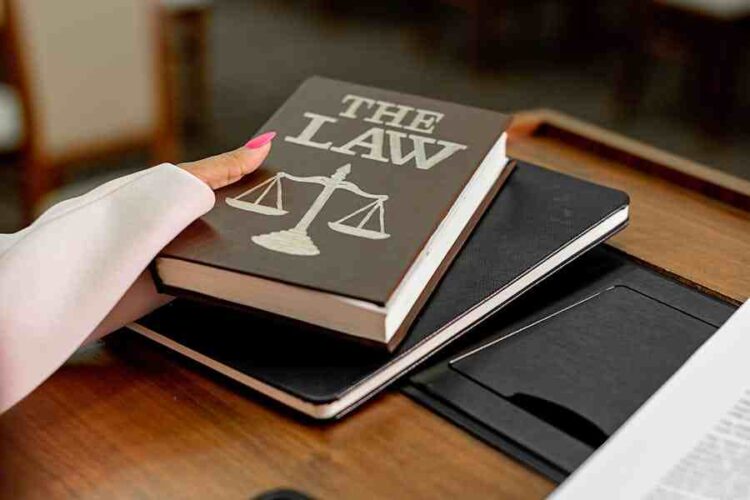How does power of attorney work after death? Death often comes to us unprepared. And when it knocks on us, some of us usually have our affairs in order while others don’t.
Proactive individuals often have power of attorney agents to help them run their affairs where they see fit. However, the question becomes, what happens after the grantor dies? Does the agent still have the POA?
Can they still handle the principal financial affairs, make medical decisions, and manage their property?
Understanding how the power of attorney works after death is crucial for the principal, the agent, and the family.
And that’s why we’ve prepared this article, to explore the limitations of the power of attorney once the principal passes away.
Feel free to consult with a Fort Lauderdale wrongful death attorney to help you make the right decisions for your situation.
How Does Power of Attorney Work After Death?
The power of attorney ceases to exist after the death of the principal. Power of attorney is a legal arrangement that allows one person, known as the agent, to make decisions on behalf of another person, known as the principal.
This relationship is solely dependent on the existence of the principal. Once the principal passes away, the authority granted to the agent through the power of attorney also ends.
The agent no longer has the legal authority to act on behalf of the deceased individual and their role as an agent terminates. Therefore, there is no power of attorney after death.
Types of Power of Attorney
There are different types of POAs available based on the principal’s needs, falling into five main categories:
- Durable and Nondurable POA – In a durable POA, the agent can continue acting on behalf of the principal even if the principal becomes unable to make decisions.
A non-durable POA ends if the principal becomes incapacitated, which might not be suitable for long-term planning.
- Springing Power of Attorney – This POA grants the agent authority only when a specific condition is met, such as the principal becoming incapacitated. Springing POAs typically lack legal authority.
- General Power of Attorney – With a general POA, the agent has broad authority to act on behalf of the principal, where the local law allows. However, the principal can still manage some matters themselves.
- Financial Power of Attorney – This grants the agent authority over the principal’s financial matters, such as managing assets, paying bills, and handling taxes.
- Medical Power of Attorney – This type of POA grants the agent limited authority to make medical decisions on behalf of the principal, including treatment options, end-of-life care, and selecting healthcare providers.
What Is Abuse of Power of Attorney After Death?
POA expires immediately after the principal dies. So, if the agent continues to act on behalf of the grantor, then that is considered an abuse of the power of attorney.
For example, the agent might, transfer property to themselves or others without proper authorization. Or make decisions that go against the wishes stated in the deceased person’s will.
If you are a victim of abuse of power of attorney after death, you need to take immediate action. First, you should gather evidence supporting your claim, such as bank statements, property documents, or any communication with the agent.
It is advisable to consult with an attorney specializing in estate planning, and probate matters to understand your legal rights and options.
The attorney can guide you through challenging the abuse, filing a complaint with the appropriate authorities, and seeking legal remedies.
Alternatives to Power of Attorney After Death
A Power of Attorney (POA) grants an individual the authority to oversee your assets and make critical decisions on your behalf, adhering strictly to your directives.
However, this authority ceases upon your demise, at which point the responsibility shifts to an appointed executor or administrator of your estate.
This executor is tasked with managing your assets, executing payments, and making decisions that are in accordance with your will and the inheritance laws.
To ensure a seamless management of your affairs after death, it is prudent to specify an executor within your will.
Doing so facilitates a smooth transition and decision-making process under the probate court’s supervision.
Is a Lasting Power of Attorney valid after death?
A Lasting Power of Attorney (LPA) remains in effect only while the individual who issued it is alive. It ceases to be valid upon the issuer‘s death.
The designated attorneys are responsible for notifying the Office of the Public Guardian about the demise and furnishing requisite documents. After the issuer’s death, the attorney can no longer handle their matters.
The course of action upon the demise of a named attorney before the issuer varies based on the stipulations in the LPA.
If a substitute attorney has been specified, they can assume the role. If only a single attorney was named without any identified substitutes, and if the issuer is still mentally sound, a new LPA may need to be established.
The LPA remains valid if multiple attorneys who can operate independently have been assigned.
However, if their decision-making process is collective and one attorney departs, the effectiveness of the LPA could be impacted, as the surviving attorneys might not be authorized to act autonomously.
Conclusion
How does power of attorney work after death? A power of attorney (POA) is a legal document that grants an agent the authority to manage the principal’s affairs.
There are different types, including durable, nondurable, springing, general, financial, and medical POAs, each with specifications based on the principal’s needs.
However, this authority ceases immediately upon the principal’s death. Any actions taken by the agent post-death can be considered an abuse of the POA, which can be legally challenged.
Appointing an executor in a will can ensure a smooth transition of responsibilities as an alternative to POA after death.










